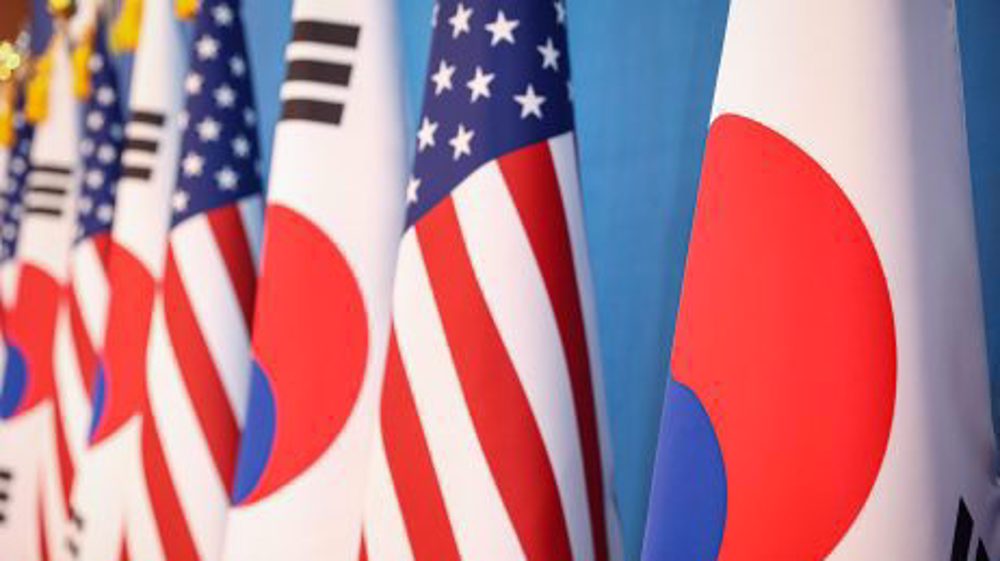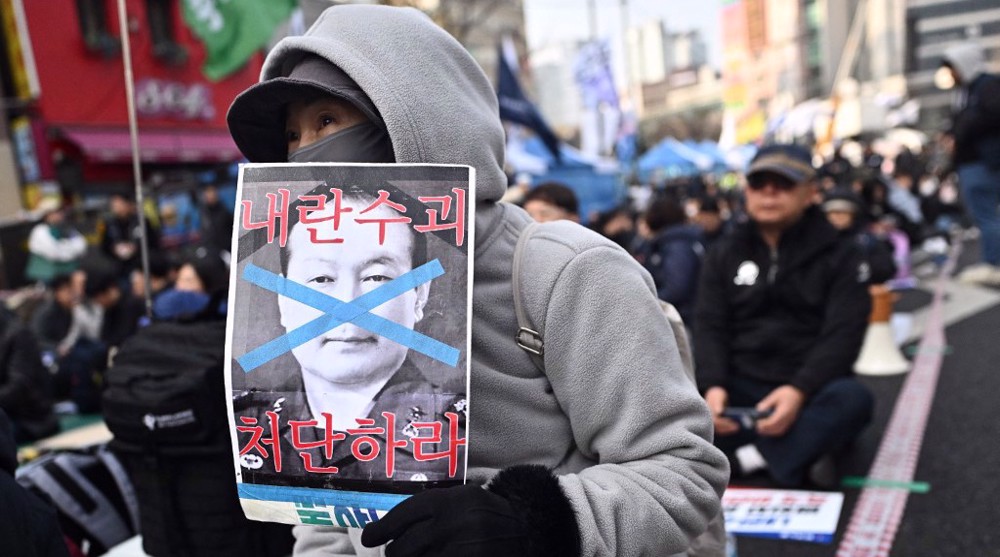South Korea officials allow new ‘comfort women’ statue
South Korean authorities have decided not to stop the setting up of a statue symbolizing Korean women used as sex slaves by Japanese soldiers during World War II, in apparent retaliation for a visit by the Japanese defense minister to a controversial shrine.
Officials in the southern port city of Busan said on Friday that they would allow activists to place a statue symbolizing Japanese wartime sex slaves, known as “comfort women,” outside the Japanese consulate in the city.
“We won’t stop the civic group from setting up the statue there if they wish to do so,” Yonhap news agency quoted local official Park Sam-seok as saying.
Busan’s municipal authorities had previously removed the statue, which is of a young woman sitting with a bird perched on her shoulder, following a settlement reached between South Korea and Japan over the issue of the “comfort women.”

Japanese Prime Minister Shinzo Abe last year offered apologies to all the women who survived the ordeal. The Japanese government also agreed to pay 8.3 million dollars to surviving Korean “comfort women” to make up for the abuses carried out by Japanese soldiers at the time of the war.
However, Korean officials were angered after Japan’s Defense Minister Tomomi Inada offered prayers at a controversial shrine for Japanese soldiers in Tokyo. Japanese troopers and commanders, including some convicted of war crimes, are buried at the Yasukuni Shrine, and visits by high-ranking Japanese officials to the site often anger China and South Korea, whose people suffered from Japanese war-time abuse.

Inada’s Thursday visit to the shrine swiftly drew criticism from South Korea and China.
More than two dozen “comfort women” monuments have been set up around South Korea, and another dozen or so abroad in the United States, Canada, and elsewhere.
Tokyo says “comfort women” statues should be removed following the landmark deal, which resolved decades of dispute over the issue.

US-South Korea trade tensions

China ‘firmly’ opposes countries making trade agreements with US at its expense

South Korea's court removes president over martial law controversy
Parl. speaker: Iran won’t be swayed by Israel’s ‘delusional’ rhetoric
Extremist Israeli minister orders closure of al-Quds Fund and Endowment office
British firm supplying engines for Israel's killer drones: Report
VIDEO | Muscat negotiations, Yemen missiles
Canada should ‘never forget’ US betrayal; old relations ‘over’: New PM
Hamas welcomes ICJ hearings on Israel’s humanitarian obligations towards Palestinians
Biden officials refrained from exerting pressure on Israel for Gaza ceasefire: Report
Sheikh Qassem: Hezbollah fully committed to ceasefire despite Israeli violations










 This makes it easy to access the Press TV website
This makes it easy to access the Press TV website